Premium Only Content
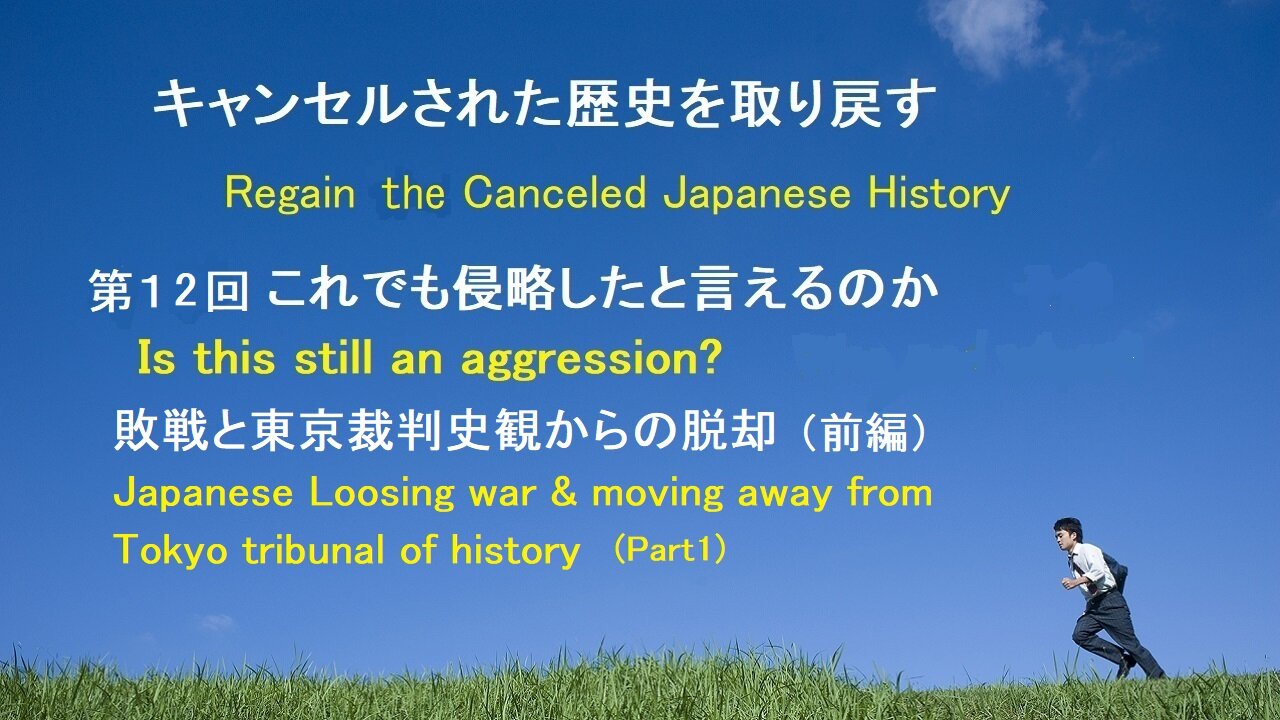
"Japanese Loosing war & Moving away from Tokyo tribunal history"
This is the twelfth installment of "Is This Still an Invasion?” This year, 2021, marks exactly 80 years since the outbreak of war in Japan. Television and newspapers were reporting that Japan was tired of war and that peace was the most important thing. They did not clear why the war broke out and what we learned from it.
NHK interviewed a 101-year-old mechanic on the USS Kaga, a former aircraft carrier that participated in the attack on Pearl Harbor, and elicited the following comments. I wonder why there is still no peace in the world. In order to prevent wars, it is of utmost importance to be considerate of the other side and engage in dialogue. When they can't solve it through dialogue, in other words diplomacy, they fall into war.
At the time, Japan was also desperately trying to avoid war with Britain and the United States.
Strategist Clausewitz also argues that war is an extension of diplomacy. At that time, Japan began to receive economic sanctions from the United States when the Japanese-Sino War was exhausting its national power. Not only sanctions, but also supporting the Chiang Kai-shek government, which is fighting Japan behind the scenes. At that time, Japan imported oil from the United States and was fighting against the Chiang Kai-shek National Revolutionary Army in China. From the perspective of the United States, it was up to oil to save or kill Japan.
The only miscalculation on the part of the U.S. was that even if war broke out between the U.S. and Japan, the U.S. would have suffered few losses and would not have expected the war to last for three years and eight months. MacArthur himself, who was on the enemy side, testified before the U.S. Senate Joint Committee on Armed Services and Foreign Relations on May 3, 1951, that the reason Japan went to war was mostly for self-defense. Prime Minister Hideki Tojo also testified in his affidavit at the Tokyo Trials that the Greater East Asia War was a war of self-defense.
Both enemy and ally war leaders admit that Japan has become a war for security reasons. However, according to the history education and general wisdom of Japan and the United States, Japan received economic sanctions from the United Kingdom and the United States because Japanese invasion, and Japan wages a war on the United States and Britain. Moreover, it is supposed that the cowardly deception before the declaration of war was made into Pearl Harbor. In 1945, on July 26, 1945, the Potsdam Declaration was announced under the names of the three countries of the United States, Britain, and China, indicating the conditions for surrender to Japan.
On August 6, 1945, the uranium-type atomic bomb was dropped on Hiroshima for the first time in human history, and the city was devastated in an instant. On the 9th, another more powerful plutonium-type atomic bomb was dropped on Nagasaki City, killing more than 210,000 civilians by the two types of atomic bombs.
This was clearly an abhorrent and inhumane war crime by the United States that unnecessarily killed civilians in accordance with the international laws and regulations of warfare at the time.
On August 14, the same year, the Potsdam Declaration was accepted, and on September 2, the same year, Japan signed the instrument of surrender on the Battleship Missouri. Internationally, September 2nd, not August 15th, is the day of Japan's surrender.
After the GHQ occupation, Japan signed the San Francisco Peace Treaty with the United States and 48 other countries, regaining its independence and sovereignty, but at the same time it was forced to give up its claims against the United States. In the intervening six years and eight months, Japan was occupied by MacArthur, the Supreme Commander of the Allied Forces. The main purpose of the occupation, as it is often said, was to remake Japan from its traditional culture to its national system so that it would never again be a threat to the United States.
Regarding the International Military Tribunal for the Far East, which was held for two years and six months from May 3, 1946 to November 12, 1948, Professor Emeritus Shoichi Watanabe, former professor emeritus at Sophia University, says that two conditions essential for a fair trial were lacking. The first is that there must be a law on which to judge. Judges have to be impartial, and these two things were not there.
He also said that there is no international jurist who admits that the Tokyo Trials were worthy of the name of a trial, yet most Japanese people do not know this. The Tokyo Tribunal view of history refers to the view of history created by the Allied retaliatory trials that did not deserve the name of trial, and it is safe to say that everything in postwar Japan has been constructed based on this view of history.
-
 4:22:34
4:22:34
Akademiks
7 hours agoNicki Minaj vs Dez Bryant. Trump Calls out Charlamagne. Diddy Denied Bail Again! ICEMAN soon?
57.2K3 -
 3:16:28
3:16:28
Nerdrotic
9 hours ago $9.32 earnedNerdrotic at Night 504
82.9K3 -
 8:20:30
8:20:30
Dr Disrespect
17 hours ago🔴LIVE - DR DISRESPECT - WARZONE - RANDOMLY GENERATED LOADOUTS EVENT
232K9 -
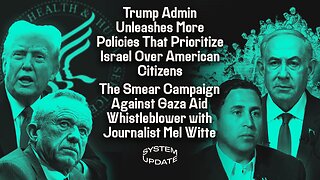 1:36:07
1:36:07
Glenn Greenwald
12 hours agoTrump Admin Unleashes More Policies That Prioritize Israel Over American Citizens; The Smear Campaign Against Gaza Aid Whistleblower with Journalist Mel Witte | SYSTEM UPDATE #497
146K192 -
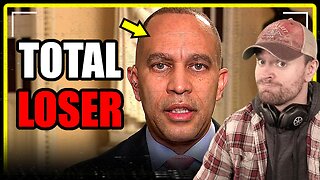 58:14
58:14
MattMorseTV
10 hours ago $14.81 earned🔴Hakeem just lost EVERYTHING.🔴
84.4K61 -
 9:21:36
9:21:36
Rallied
13 hours ago $3.19 earnedWARZONE CHALLENGES WITH DRDISRESPECT & BOB
86K5 -
 7:15:14
7:15:14
SpartakusLIVE
10 hours agoMonday MOTIVATION leaves viewers ENERGIZED and MAXIMIZED to conquer the week
39.2K1 -
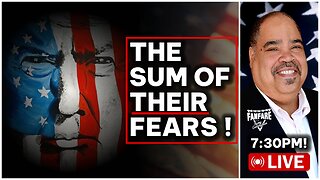 3:19:17
3:19:17
Barry Cunningham
9 hours agoPRESIDENT TRUMP IS THE SUM OF THEIR FEARS! IT HAS BEGUN!
66.2K76 -
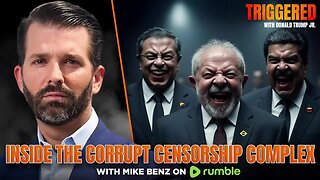 58:25
58:25
Donald Trump Jr.
14 hours agoMike Benz Takes us Inside the Global Censorship Complex | Triggered Ep264
129K128 -
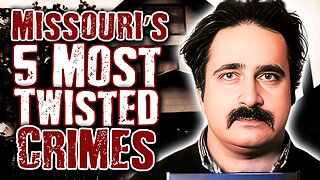 28:36
28:36
Scary Mysteries
19 hours agoMISSOURI'S 5 Darkest True Crime Nightmares
25K2